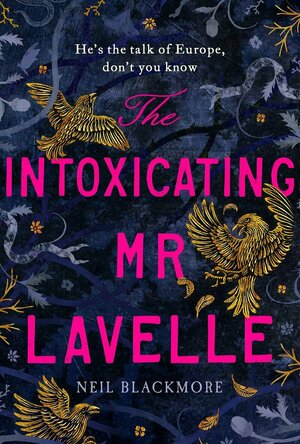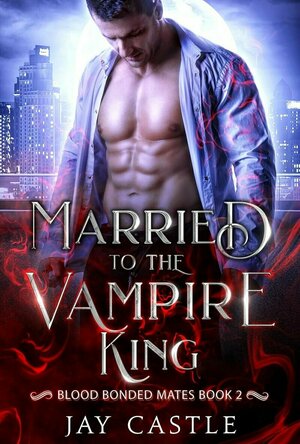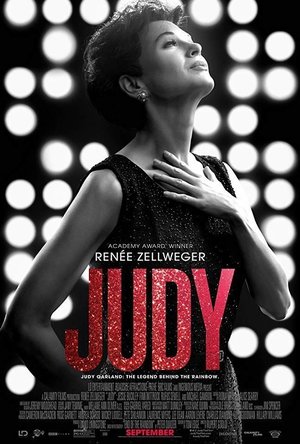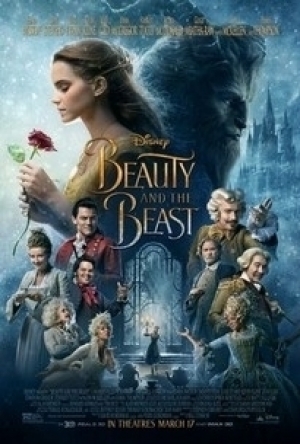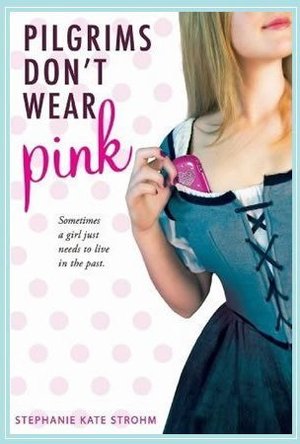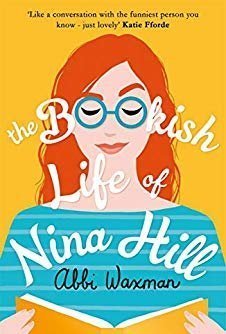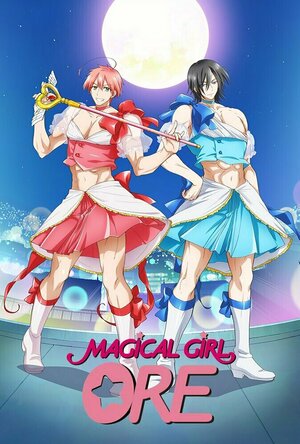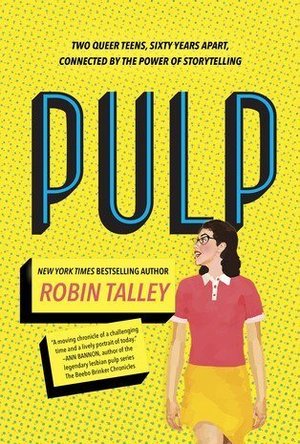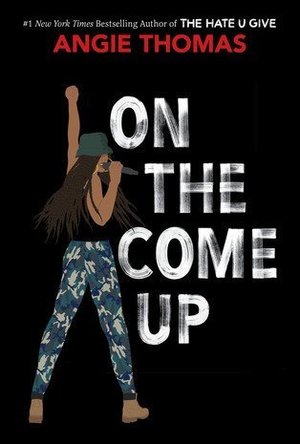Search
ClareR (6062 KP) rated The Intoxicating Mr Lavelle in Books
Apr 9, 2021
The Intoxicating Mr Lavelle rather intoxicated me, if I’m honest. It’s one of those witty yet heart-rending books that I didn’t want to stop listening to.
Ben Aldridge, the narrator, did his part so well. I believed that he was each of the separate characters - he made each of them sound so different, and he especially made Lavelle sound just how I would have imagined him to.
Two brothers, Benjamin and Edgar are on what is probably the most exciting and daunting trip of their young lives - a Grand Tour of Europe. It was what all the well-heeled young men and women would do at the time, in the hope that they’d make good business and, you never know, romantic connections. However, it quickly becomes apparent that the Bowen brothers are looked down on as being of the mercantile class. This horrified me as a modern day reader. Firstly, that two sheltered, innocent boys should be sent out to travel across Europe alone (must be the ‘Mother of Sons’ in me), secondly, that the upper classes were so bloody rude! They had the power to destroy someone with just a word. I could have scooped these boys up and taken them home, just to remove them from these horrendous people.
This is also the story of Benjamin’s self discovery. He meets and falls in love with Horace Lavelle at a time when men could be hanged as a ‘sodomite’. The author is upfront at the start that he had taken some liberties with this book. Homosexuality was illegal. No-one would take a chance of showing that they were gay. And there is that element of danger, of being found out, in this book despite those liberties.
But it’s such a lovely book - I wanted Benjamin to be happy, and I could see the potential for a train wreck ahead. And that’s all I’ll say! What I will say, is that this is a novel well worth your time!
Ben Aldridge, the narrator, did his part so well. I believed that he was each of the separate characters - he made each of them sound so different, and he especially made Lavelle sound just how I would have imagined him to.
Two brothers, Benjamin and Edgar are on what is probably the most exciting and daunting trip of their young lives - a Grand Tour of Europe. It was what all the well-heeled young men and women would do at the time, in the hope that they’d make good business and, you never know, romantic connections. However, it quickly becomes apparent that the Bowen brothers are looked down on as being of the mercantile class. This horrified me as a modern day reader. Firstly, that two sheltered, innocent boys should be sent out to travel across Europe alone (must be the ‘Mother of Sons’ in me), secondly, that the upper classes were so bloody rude! They had the power to destroy someone with just a word. I could have scooped these boys up and taken them home, just to remove them from these horrendous people.
This is also the story of Benjamin’s self discovery. He meets and falls in love with Horace Lavelle at a time when men could be hanged as a ‘sodomite’. The author is upfront at the start that he had taken some liberties with this book. Homosexuality was illegal. No-one would take a chance of showing that they were gay. And there is that element of danger, of being found out, in this book despite those liberties.
But it’s such a lovely book - I wanted Benjamin to be happy, and I could see the potential for a train wreck ahead. And that’s all I’ll say! What I will say, is that this is a novel well worth your time!
Debbiereadsbook (1650 KP) rated Married to the Vampire King (Blood Bonded Mates #2) in Books
May 6, 2024
longer, but so much better than book one!!
Independent reviewer for Gay Romance Reviews, I was gifted my copy of this book.
This is book 2 in the Blood Bonded Mates series. While not strictly necessary to read book one, Snowed In With The Vampire Prince, it will give you a better understanding of Pierce and James who play a huge part here. And you know, it was rather good! I thoroughly enjoyed that book. But this book??
Freaking LOVED this book!
Ethan is a with without any gifts. Nathaniel is the reigning Vampire King. The witches and vampires will kill each other, if Ethan doesn't do something, and that something is marry Nathaniel. The mirror told him so. What could possibly go wrong?? Well, turns out, feelings could get involved!
What I especially liked was how Ethan's secrets, and Nathaniel's, took time to come out, and they came out to each other slowly. I'm gonna be vague here, cos spoilers, but I loved this, I really did.
Nathaniel knew who Ethan was, right from the start, but he didn't know what would happen. He wanted to spring the idea at Ethan in good time, but things had a way of sending plans out the window!
I loved that we got to catch up with Pierce and James from book 1. They both play a huge part here and it was fab how they seamlessly slotted into this book. I hope they pop up in follwoing books too.
I loved how Ethan and Nathaniel surprised each other, at every turn. Me too, to be fair!! It's a lot longer than book one, some 300 odd pages, and I think this book needed those extra pages. The story was very multi layered.
There is romance and love, and betrayal of the highest order and I loved that I did not see who was the bad guy here! Totally sideswiped with that one, so well played there Mr castle, very well played.
I am loving wathcing these people develop and grow, and as the author puts out more stories, I wanna read them! I can't see who might be next, but I need, NEEEEEEEEEEEEEEEEEEEEEEEEEED to read it!
5 full and shiny stars!
*same worded review will appear elsewhere
This is book 2 in the Blood Bonded Mates series. While not strictly necessary to read book one, Snowed In With The Vampire Prince, it will give you a better understanding of Pierce and James who play a huge part here. And you know, it was rather good! I thoroughly enjoyed that book. But this book??
Freaking LOVED this book!
Ethan is a with without any gifts. Nathaniel is the reigning Vampire King. The witches and vampires will kill each other, if Ethan doesn't do something, and that something is marry Nathaniel. The mirror told him so. What could possibly go wrong?? Well, turns out, feelings could get involved!
What I especially liked was how Ethan's secrets, and Nathaniel's, took time to come out, and they came out to each other slowly. I'm gonna be vague here, cos spoilers, but I loved this, I really did.
Nathaniel knew who Ethan was, right from the start, but he didn't know what would happen. He wanted to spring the idea at Ethan in good time, but things had a way of sending plans out the window!
I loved that we got to catch up with Pierce and James from book 1. They both play a huge part here and it was fab how they seamlessly slotted into this book. I hope they pop up in follwoing books too.
I loved how Ethan and Nathaniel surprised each other, at every turn. Me too, to be fair!! It's a lot longer than book one, some 300 odd pages, and I think this book needed those extra pages. The story was very multi layered.
There is romance and love, and betrayal of the highest order and I loved that I did not see who was the bad guy here! Totally sideswiped with that one, so well played there Mr castle, very well played.
I am loving wathcing these people develop and grow, and as the author puts out more stories, I wanna read them! I can't see who might be next, but I need, NEEEEEEEEEEEEEEEEEEEEEEEEEED to read it!
5 full and shiny stars!
*same worded review will appear elsewhere
Emma @ The Movies (1786 KP) rated Judy (2019) in Movies
Dec 8, 2019
There's a definite fatigue now with films based on music stars and their works, I was already feeling it earlier in the year with Yesterday and Blinded By The Light. While I wasn't particularly enthusiastic about seeing Judy the trailer had me as soon as I heard "Somewhere over the rainbow".
Judy, once a household name, is short on money and her reputation is making it hard to get the work she needs. As her welcome at hotels is no longer guaranteed and her ex-husband's concern for what sort of life she's giving their children grows she realises she needs to find a way to make enough money to get them a proper home.
Her answer lies in England with nightly sellout performances to the crowds. But as the loneliness and isolation set in it might be that her not so glamorous lifestyle has caught up with her.
As with many real life depictions I came out wanting to know what was true to Garland's actual life and what was added with artistic license. Perhaps the worst thing about this film is just how accurate it is, the bullying, the abuse, the drugs, it shows a shocking side of Hollywood as it brought up its young stars. It was a little sad to find out that my two favourite bits of the film were probably the only bits in the whole thing that weren't based on actual events, but when you think about it that's not a bad statistic.
Renée Zellweger is outstanding. A year of vocal training before even getting to the set and being able to deliver such a stellar singing performance while simultaneously having to act like you're high on pills, exhaustion and drink... I'm genuinely amazed when I think back to some moments in the film.
I didn't get that same rush from listening to her singing in the film as I did in the trailer. She's wonderful performing the songs but I just felt that everything around the songs was too much of a distraction from it.
Yes, there are other people in Judy beyond Renée Zellweger but I'm not sure that there was anything to them that could shine as much as she did. Jessie Buckley felt underused, and after seeing Wild Rose earlier this year it was sad to see her so close to a stage without her getting to sing. I thought Andy Nyman made a good show as Dan, one half of the gay couple Judy befriends, the emotion that ran through his scenes with her had me wrecked.
I felt a little thrown by the flashbacks initially, but the drip feeding of scenes from her life as we progressed through the modern part of the story worked well. Each reveal would make you a little more heartbroken and concerned for adult Judy, the balance was perfect.
From the glamorous hotels to the dark night streets of London I thought all the settings were chosen well. The design overall with the costumes and sets felt spot on too. Seeing images of the cast against their real life counterparts really gives you pause to think about how hard everyone on that film worked to make the perfect shot.
There aren't all that many drawbacks here, apart from the fatigue for this sort of film that I mentioned earlier it felt very much like I've seen this film before. The recent biopic Stan & Ollie has so many similar features and scenarios that Judy ended up feeling like it wasn't such a new release. Despite that I did enjoy it, I just wish there had been more songs in it, I'm a sucker for a good tune.
Originally posted on: https://emmaatthemovies.blogspot.com/2019/11/judy-movie-review.html
Judy, once a household name, is short on money and her reputation is making it hard to get the work she needs. As her welcome at hotels is no longer guaranteed and her ex-husband's concern for what sort of life she's giving their children grows she realises she needs to find a way to make enough money to get them a proper home.
Her answer lies in England with nightly sellout performances to the crowds. But as the loneliness and isolation set in it might be that her not so glamorous lifestyle has caught up with her.
As with many real life depictions I came out wanting to know what was true to Garland's actual life and what was added with artistic license. Perhaps the worst thing about this film is just how accurate it is, the bullying, the abuse, the drugs, it shows a shocking side of Hollywood as it brought up its young stars. It was a little sad to find out that my two favourite bits of the film were probably the only bits in the whole thing that weren't based on actual events, but when you think about it that's not a bad statistic.
Renée Zellweger is outstanding. A year of vocal training before even getting to the set and being able to deliver such a stellar singing performance while simultaneously having to act like you're high on pills, exhaustion and drink... I'm genuinely amazed when I think back to some moments in the film.
I didn't get that same rush from listening to her singing in the film as I did in the trailer. She's wonderful performing the songs but I just felt that everything around the songs was too much of a distraction from it.
Yes, there are other people in Judy beyond Renée Zellweger but I'm not sure that there was anything to them that could shine as much as she did. Jessie Buckley felt underused, and after seeing Wild Rose earlier this year it was sad to see her so close to a stage without her getting to sing. I thought Andy Nyman made a good show as Dan, one half of the gay couple Judy befriends, the emotion that ran through his scenes with her had me wrecked.
I felt a little thrown by the flashbacks initially, but the drip feeding of scenes from her life as we progressed through the modern part of the story worked well. Each reveal would make you a little more heartbroken and concerned for adult Judy, the balance was perfect.
From the glamorous hotels to the dark night streets of London I thought all the settings were chosen well. The design overall with the costumes and sets felt spot on too. Seeing images of the cast against their real life counterparts really gives you pause to think about how hard everyone on that film worked to make the perfect shot.
There aren't all that many drawbacks here, apart from the fatigue for this sort of film that I mentioned earlier it felt very much like I've seen this film before. The recent biopic Stan & Ollie has so many similar features and scenarios that Judy ended up feeling like it wasn't such a new release. Despite that I did enjoy it, I just wish there had been more songs in it, I'm a sucker for a good tune.
Originally posted on: https://emmaatthemovies.blogspot.com/2019/11/judy-movie-review.html
Bob Mann (459 KP) rated Beauty and the Beast (2017) in Movies
Sep 29, 2021
Tail as old as Kline.
With the Disney marketing machine in full swing, its hard to separate the hype from the movie reality in this latest live-action remake of one of their classic animated features from 1991. If you are lucky enough to have children you will know that each child tends to have “their” Disney feature: for my second daughter (then 4) that film would be “Beauty and the Beast”. With a VHS video tape worn down to the substrate, this is a film I know every line of dialogue to (“I’m especially good at expectorating”). So seeing this movie was always going to be a wander down Nostalgia Avenue and a left turn into Emotion Crescent, regardless of how good a film it was. And so it proved.
Taking no chances with a beloved formula, most of the film is an almost exact frame-for-frame recreation of the original, with the odd diversion which, in the main, is to slot in new songs by original composer Alan Menken with Tim Rice lyrics. For, unlike “La La Land” this is a proper musical lover’s musical with songs dropping in regularly throughout the running time.
Which brings us to Emma Watson’s Belle. I’ve seen review comments that she ‘dials it in’ with a humourless and souless portrayal of the iconic bookworm. I can’t fathom what film those people were watching! I found Watson to be utterly mesmerising, confident and delightful with a fine (though possibly auto-tuned) singing voice. Her ‘Sound of Music’ moment (you’ll know the one) brought tears to my eyes. There are moments when her acting is highly reminiscent of Hermione Grainger, but this is about as crass a criticism as saying that Harrison Ford has done his “Knock it Off” snarl again.
I even felt that the somewhat dodgy bestiality/Stockholm-syndrome thing, inherent in the plot, was deftly handled by her. Curiously (and I feel guilty for even thinking this) the only part I felt slightly icky about was the age difference evident in the final kiss between Watson (now 27) and the transformed beast (sorry if this is a TERRIBLE spoiler for you!) played by Dan Stevens (“Downton Abbey”): even though with Stevens being only 35 this is only 8 years! I think the problem here is that it is still difficult for me to decouple the modern feminist woman that is Watson from the picture of the young Hermione as a schoolgirl in her first term at Hogwarts. (I know this is terrible typecasting, and definitely my bad, but that’s the way it is).
Stevens himself is fine as the cursed prince, albeit that most of his scenes are behind the CGI-created wet-rug that is the beast. Similarly, most of the supporting stars (Ewan McGregor as Lumière, Ian McKellen as Cogsworth, Emma Thompson as Mrs Potts and an almost unrecognisable Stanley Tucci as the maestro Cadenza) are similarly confined to voice parts for the majority of the film. Kevin Kline is great as the supremely huggable Maurice. But the performances that really shine though are those of Luke Evans (“The Girl on the Train“) as the odiously boorish Gaston and Josh Gad (Olaf in “Frozen”) as his hilariously adoring sidekick LeFou. Much has been made of the gay Disney angle to this element of the story, most of which is arrant homophobic nonsense since the scenes are pretty innocuous. In fact the most adventurous ‘non-heterosexual’ aspect of the film, and a scene that raises by far the biggest laugh, relates to a completely different character.
Most of the songs delivered in the film are OK without, in my view, surpassing the versions in the original. Only Dan Steven’s dramatic new song “Evermore”- as one of the few really new ‘full-length’ songs in the film – has ‘Oscar nomination’ written all over it. However, the film eschews the ‘live-filming’ approach to song production featured in recent musicals like “La La Land” and “Les Miserables”, with some degree of lip-sync evident. Whilst I understand that ‘imperfection’ is not a “Disney thing”, I found that lack of risk-taking a bit of a disappointment.
The makers of the original “Beauty and the Beast” would I’m sure have been bowled over by the quality of the special effects on show here. However, that was in 1991 and it is now 2017, when “The Jungle Book” has set the bar for CGI effects. By today’s standards, the special effects here are mediocre at best. I wondered at first if some of the dodgy green-screen work was delivered that way to make it seem more “cartoony”, but I doubt that – – why bother? More irritatingly, the animated chattels in the castle, especially the candlestick Lumière, are seriously unconvincing. Mrs Potts, the teapot, and her son Chip, the cup, are rendered as flat and two-dimensional. There should have been no shortage of money to thrown at the effects with a reported budget of $160 million. Where has the Disney magic gone?
The film also seems to be rendered primarily for a 3D showing (I saw it in 2D). I say this because some of the panning shots (notably one around the library) to me just ended up as an unimpressive blur of mediocrity. Most odd.
The director is Bill Condon responsible for the modestly well-respected but low-key “Dreamgirls” and “Mr Holmes” but also the much derided “Breaking Dawn” end to the “Twilight” series. As such this seems to have been quite a risk that Disney took with such a high profile property, and I would have been intrigued to see what a more innovative director like Chazelle or Iñárritu would have done with it.
However, despite my reservations it is bound to be a MONSTER hit in every sense of the word, and kids aged 5 to 10 will, I predict, absolutely adore it (be warned that kids under 5 may be seriously scared by some of the darker scenes, especially the two wolf-attacks). For a younger age group, I would rate it as an easy FFFFF. As an adult viewer, given that I have viewed it through the rosy tint of my nostalgia-glasses (unfortunately you cannot hire these at the cinema if you haven’t brought your own!), this was an enjoyable watch. Despite my (more than expected!) slew of criticisms above my rating is still….
Taking no chances with a beloved formula, most of the film is an almost exact frame-for-frame recreation of the original, with the odd diversion which, in the main, is to slot in new songs by original composer Alan Menken with Tim Rice lyrics. For, unlike “La La Land” this is a proper musical lover’s musical with songs dropping in regularly throughout the running time.
Which brings us to Emma Watson’s Belle. I’ve seen review comments that she ‘dials it in’ with a humourless and souless portrayal of the iconic bookworm. I can’t fathom what film those people were watching! I found Watson to be utterly mesmerising, confident and delightful with a fine (though possibly auto-tuned) singing voice. Her ‘Sound of Music’ moment (you’ll know the one) brought tears to my eyes. There are moments when her acting is highly reminiscent of Hermione Grainger, but this is about as crass a criticism as saying that Harrison Ford has done his “Knock it Off” snarl again.
I even felt that the somewhat dodgy bestiality/Stockholm-syndrome thing, inherent in the plot, was deftly handled by her. Curiously (and I feel guilty for even thinking this) the only part I felt slightly icky about was the age difference evident in the final kiss between Watson (now 27) and the transformed beast (sorry if this is a TERRIBLE spoiler for you!) played by Dan Stevens (“Downton Abbey”): even though with Stevens being only 35 this is only 8 years! I think the problem here is that it is still difficult for me to decouple the modern feminist woman that is Watson from the picture of the young Hermione as a schoolgirl in her first term at Hogwarts. (I know this is terrible typecasting, and definitely my bad, but that’s the way it is).
Stevens himself is fine as the cursed prince, albeit that most of his scenes are behind the CGI-created wet-rug that is the beast. Similarly, most of the supporting stars (Ewan McGregor as Lumière, Ian McKellen as Cogsworth, Emma Thompson as Mrs Potts and an almost unrecognisable Stanley Tucci as the maestro Cadenza) are similarly confined to voice parts for the majority of the film. Kevin Kline is great as the supremely huggable Maurice. But the performances that really shine though are those of Luke Evans (“The Girl on the Train“) as the odiously boorish Gaston and Josh Gad (Olaf in “Frozen”) as his hilariously adoring sidekick LeFou. Much has been made of the gay Disney angle to this element of the story, most of which is arrant homophobic nonsense since the scenes are pretty innocuous. In fact the most adventurous ‘non-heterosexual’ aspect of the film, and a scene that raises by far the biggest laugh, relates to a completely different character.
Most of the songs delivered in the film are OK without, in my view, surpassing the versions in the original. Only Dan Steven’s dramatic new song “Evermore”- as one of the few really new ‘full-length’ songs in the film – has ‘Oscar nomination’ written all over it. However, the film eschews the ‘live-filming’ approach to song production featured in recent musicals like “La La Land” and “Les Miserables”, with some degree of lip-sync evident. Whilst I understand that ‘imperfection’ is not a “Disney thing”, I found that lack of risk-taking a bit of a disappointment.
The makers of the original “Beauty and the Beast” would I’m sure have been bowled over by the quality of the special effects on show here. However, that was in 1991 and it is now 2017, when “The Jungle Book” has set the bar for CGI effects. By today’s standards, the special effects here are mediocre at best. I wondered at first if some of the dodgy green-screen work was delivered that way to make it seem more “cartoony”, but I doubt that – – why bother? More irritatingly, the animated chattels in the castle, especially the candlestick Lumière, are seriously unconvincing. Mrs Potts, the teapot, and her son Chip, the cup, are rendered as flat and two-dimensional. There should have been no shortage of money to thrown at the effects with a reported budget of $160 million. Where has the Disney magic gone?
The film also seems to be rendered primarily for a 3D showing (I saw it in 2D). I say this because some of the panning shots (notably one around the library) to me just ended up as an unimpressive blur of mediocrity. Most odd.
The director is Bill Condon responsible for the modestly well-respected but low-key “Dreamgirls” and “Mr Holmes” but also the much derided “Breaking Dawn” end to the “Twilight” series. As such this seems to have been quite a risk that Disney took with such a high profile property, and I would have been intrigued to see what a more innovative director like Chazelle or Iñárritu would have done with it.
However, despite my reservations it is bound to be a MONSTER hit in every sense of the word, and kids aged 5 to 10 will, I predict, absolutely adore it (be warned that kids under 5 may be seriously scared by some of the darker scenes, especially the two wolf-attacks). For a younger age group, I would rate it as an easy FFFFF. As an adult viewer, given that I have viewed it through the rosy tint of my nostalgia-glasses (unfortunately you cannot hire these at the cinema if you haven’t brought your own!), this was an enjoyable watch. Despite my (more than expected!) slew of criticisms above my rating is still….
Haley Mathiot (9 KP) rated Pilgrims Don't Wear Pink (Pilgrims, #1) in Books
Apr 27, 2018
I liked Pilgrims Don't Wear Pink. For the most part, it was a good read. There was only one thing that I didn't particularly like, but it was a pretty large part.
The good:
-The plot was fun. I enjoyed the storyline, the twists and turns, and the ending. Some of it I saw coming, some of it I didn't—but even when I expected it, I enjoyed seeing it work out.
-The characters: Dev (Libby's extremely gay friend) was fabulous in every sense of the word. If he were real, he'd be my buddy, even though he'd be constantly criticizing my shoes. Garrett, the reporter, is so nerd-tastic that I literally geeked out when he was introduced. Cam's romantic side was the hero every girl dreams about.
-The relationship progression: I knew from the get-go that Cam was going to be the greasy sleazy character that charms the girls but is really a jerk, and that Garrett was going to be the awesome-sauce hero. But when Libby first meets the characters, the reader perceives them just like she does: that Cam was a Shakespeare-quoting flower-throwing romantic, and Garrett was a nerd (again, I liked him more from the beginning anyway). The transition happened so slowly and flawlessly that I didn't see it happen, it just did.
-I've lead camps before. They're so much fun. Strohm nailed it! I loved the little girls! Ah for those scenes I totally wanted to be Libby.
-The writing was totally great. It felt like a teen's interior monologue, it was witty, fun, clear, and easy to read. It was perfect for the genre.
-The ending was pretty darn perfect. I liked what Libby learned, and how she changed. If the character hasn't changed from the beginning of the book to the end, nothing happened! The change was good. All in all the whole book was pretty cute.
The only not-so-good thing:
-I couldn't figure Libby out. Why doesn't she watch Battlestar Galactica or play Assassin's Creed? (That would totally be her thing. I bet after this story ends she turns into a total geek.) Libby was somewhat contradictory. She seemed to have a pretty clear view of right and wrong, and she was smart, but she didn't pick up on things that were blatantly obvious (trying to keep it spoiler-free here).
When there is only one not-so-good thing in the whole book, usually I'll rate it pretty high. But when the only not-so-good thing in the whole book is the main character? The whole way through reading this I kept thinking "Libby, what the heck are you thinking?" and she kind of annoyed me. I liked her, but again, her character seemed conflicting.
All in all, I enjoyed Pilgrims Don't Wear Pink, and would still recommend it for a fun quick light read.
Content/Recommendation: Little language, few references to sex. Ages 14+
The good:
-The plot was fun. I enjoyed the storyline, the twists and turns, and the ending. Some of it I saw coming, some of it I didn't—but even when I expected it, I enjoyed seeing it work out.
-The characters: Dev (Libby's extremely gay friend) was fabulous in every sense of the word. If he were real, he'd be my buddy, even though he'd be constantly criticizing my shoes. Garrett, the reporter, is so nerd-tastic that I literally geeked out when he was introduced. Cam's romantic side was the hero every girl dreams about.
-The relationship progression: I knew from the get-go that Cam was going to be the greasy sleazy character that charms the girls but is really a jerk, and that Garrett was going to be the awesome-sauce hero. But when Libby first meets the characters, the reader perceives them just like she does: that Cam was a Shakespeare-quoting flower-throwing romantic, and Garrett was a nerd (again, I liked him more from the beginning anyway). The transition happened so slowly and flawlessly that I didn't see it happen, it just did.
-I've lead camps before. They're so much fun. Strohm nailed it! I loved the little girls! Ah for those scenes I totally wanted to be Libby.
-The writing was totally great. It felt like a teen's interior monologue, it was witty, fun, clear, and easy to read. It was perfect for the genre.
-The ending was pretty darn perfect. I liked what Libby learned, and how she changed. If the character hasn't changed from the beginning of the book to the end, nothing happened! The change was good. All in all the whole book was pretty cute.
The only not-so-good thing:
-I couldn't figure Libby out. Why doesn't she watch Battlestar Galactica or play Assassin's Creed? (That would totally be her thing. I bet after this story ends she turns into a total geek.) Libby was somewhat contradictory. She seemed to have a pretty clear view of right and wrong, and she was smart, but she didn't pick up on things that were blatantly obvious (trying to keep it spoiler-free here).
When there is only one not-so-good thing in the whole book, usually I'll rate it pretty high. But when the only not-so-good thing in the whole book is the main character? The whole way through reading this I kept thinking "Libby, what the heck are you thinking?" and she kind of annoyed me. I liked her, but again, her character seemed conflicting.
All in all, I enjoyed Pilgrims Don't Wear Pink, and would still recommend it for a fun quick light read.
Content/Recommendation: Little language, few references to sex. Ages 14+
Kristy H (1252 KP) rated The Bookish Life of Nina Hill in Books
Aug 5, 2019
Nina Hill has her life just how she wants it: a job at a bookstore, an apartment with a reading nook and her cat Phil, and her days scheduled around her organized planner. But her neatly designed life gets a big shock when the father she never knew suddenly dies, giving Nina newfound knowledge of a host of brothers, sisters, nieces, and nephews. Add on to that a crush on her trivia nemesis, Tom, and Nina's careful life is a mess.
I've been wanting to read this for a while, as it sounded totally up my alley, and it so was. It's a major ode to books and bookworms. I felt such an affinity to Nina, and I found the book to be witty and sweet. When I first started it, I was worried it might be a little too cute (the writing style is quirky and different), but Nina and the writing quickly grew on me.
There's so much to love and identify with in this one--about books and bookstores, trivia, family, love, and it deftly handles anxiety and introversion. I'm sure so many readers will find parts of themselves in Nina. I know I did.
"As an only child of a single mother, Nina's natural state was solitude. Growing up, she saw other people with fathers and brothers and sisters, and it looked like fun, but generally, she thought she was better of without a crowd."
I absolutely adored how Nina's finding her new family changed her--it was touching and funny. The cast of characters we meet is hilarious and yet poignant at times. Because Nina's (now late) father was older, she has brothers and sisters of a variety of ages, as well as a charming gay nephew. But watching her come out of her shell, meeting these people, is really lovely. (And brave.)
"Nina worried she liked being alone too much; it was the only time she ever fully relaxed. People were... exhausting. They made her anxious."
Honestly, I loved Nina. The way she interacted with the kids in the various book groups she ran at the bookstore. The way she handled falling for Tom. The way she loved her cat. The realistic way she presented her anxiety. The fact that she was introverted but friendly and kind. (Imagine that? Introverts can be fun, not just evil curmudgeons.) Her deep love of books and her desire to help other people love books, too. I could go on and on.
While you can see how some of this story will play out, it doesn't make it any less fun to read. It's really sweet, funny, and enjoyable. I totally fell for Nina and found it so easy to get caught up in her story and her life. This book was very touching, and I totally teared up at the end, which is rare for me. Definitely recommend this one. 4+ stars.
I've been wanting to read this for a while, as it sounded totally up my alley, and it so was. It's a major ode to books and bookworms. I felt such an affinity to Nina, and I found the book to be witty and sweet. When I first started it, I was worried it might be a little too cute (the writing style is quirky and different), but Nina and the writing quickly grew on me.
There's so much to love and identify with in this one--about books and bookstores, trivia, family, love, and it deftly handles anxiety and introversion. I'm sure so many readers will find parts of themselves in Nina. I know I did.
"As an only child of a single mother, Nina's natural state was solitude. Growing up, she saw other people with fathers and brothers and sisters, and it looked like fun, but generally, she thought she was better of without a crowd."
I absolutely adored how Nina's finding her new family changed her--it was touching and funny. The cast of characters we meet is hilarious and yet poignant at times. Because Nina's (now late) father was older, she has brothers and sisters of a variety of ages, as well as a charming gay nephew. But watching her come out of her shell, meeting these people, is really lovely. (And brave.)
"Nina worried she liked being alone too much; it was the only time she ever fully relaxed. People were... exhausting. They made her anxious."
Honestly, I loved Nina. The way she interacted with the kids in the various book groups she ran at the bookstore. The way she handled falling for Tom. The way she loved her cat. The realistic way she presented her anxiety. The fact that she was introverted but friendly and kind. (Imagine that? Introverts can be fun, not just evil curmudgeons.) Her deep love of books and her desire to help other people love books, too. I could go on and on.
While you can see how some of this story will play out, it doesn't make it any less fun to read. It's really sweet, funny, and enjoyable. I totally fell for Nina and found it so easy to get caught up in her story and her life. This book was very touching, and I totally teared up at the end, which is rare for me. Definitely recommend this one. 4+ stars.
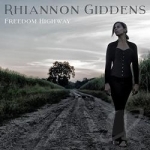
Freedom Highway by Rhiannon Giddens
Album Watch
Freedom Highway, Grammy Award–winner and 2017 Grammy nominee Rhiannon Giddens’ follow-up to her...
country
Jesters_folly (230 KP) rated Magical Girl Ore in TV
Sep 30, 2019
Contains spoilers, click to show
Saki and Sakuyo want to be an Idol duo but when Sakuyo’s brother, Mohiro gets into trouble Saki find that the power of love (and a hand from a fairy) can transform her in to a magic girl with a difference. Now she must juggle working towards her dreams with protecting Mohiro and the world from rampaging demons
Magic Girl Ore is a subversive parody of the normal ‘Magic Girl’ series’, it takes the tropes of series’ like ‘Sailor Moon’ and turns them on their head and it is these subversions that make the show. The story line is, to be honest a bit bland, in most episodes the girls are doing some kind of Idol related activity then the demons turn up and try to kidnap Mohiro, who is always around often for convoluted reason, then the girls change and save the day. Each demon attack seems to get worst, building up to the final plan. It takes a few episode to realise that the formulaic, almost dull nature of the show is deliberate, until the end the action is not really important because what you are watching is a subversion of a genre. If you take any number of shows you can see the same plot, ‘Sailor Moon’, ‘Miraculous’, ‘Power Rangers’ and even ‘Scooby Doo’ all have the same plot, a ‘big Bad’ is trying to take over the world/amusement park and the heroes have to stop them.
There are any number of ‘Magic girl’ series’, the genre started in Japan but soon became popular all over the world with many countries creating their own spin on the idea. Most of the time the main character is a young girl who is given the power to transform into their Magic form to fight evil. This is still the standard plot for ‘Magic Girl Ore’ however; the fairy is a normal looking business man, the transformation changes the school girl into a 20 something muscular man, still in the tradition magic girl dress and the demons are cute and buff, there is a hunky possibly gay feel to the demons. This bring us to the transformations, the magic girls change by concentrating on saving the person they love, with Saki this follows a common theme, the school girl in love with her best friend’s brother, the brother doesn’t know. Then Sakuyo get the power but the person she loves is Saki. It’s also hinted that Mohiro prefers Saki in her male form. There are two other magic girls, Michiru, who’s love is male Saki but she hides her feelings so much that her transformations take more energy and ages her and her partner, Ruka who’s love is Michiru.
‘Magic Girl Ore’ could have easily fallen into concentrating on these relationships turning the series into a LGB.. statement but it doesn’t, girls like girls or magic girl men or men who like men but it’s just treated as the way it is and, I think that is the right way to do it.
Over all ‘Magic Girl Ore’ is a lot of fun but does seem to drag occasionally.
Magic Girl Ore is a subversive parody of the normal ‘Magic Girl’ series’, it takes the tropes of series’ like ‘Sailor Moon’ and turns them on their head and it is these subversions that make the show. The story line is, to be honest a bit bland, in most episodes the girls are doing some kind of Idol related activity then the demons turn up and try to kidnap Mohiro, who is always around often for convoluted reason, then the girls change and save the day. Each demon attack seems to get worst, building up to the final plan. It takes a few episode to realise that the formulaic, almost dull nature of the show is deliberate, until the end the action is not really important because what you are watching is a subversion of a genre. If you take any number of shows you can see the same plot, ‘Sailor Moon’, ‘Miraculous’, ‘Power Rangers’ and even ‘Scooby Doo’ all have the same plot, a ‘big Bad’ is trying to take over the world/amusement park and the heroes have to stop them.
There are any number of ‘Magic girl’ series’, the genre started in Japan but soon became popular all over the world with many countries creating their own spin on the idea. Most of the time the main character is a young girl who is given the power to transform into their Magic form to fight evil. This is still the standard plot for ‘Magic Girl Ore’ however; the fairy is a normal looking business man, the transformation changes the school girl into a 20 something muscular man, still in the tradition magic girl dress and the demons are cute and buff, there is a hunky possibly gay feel to the demons. This bring us to the transformations, the magic girls change by concentrating on saving the person they love, with Saki this follows a common theme, the school girl in love with her best friend’s brother, the brother doesn’t know. Then Sakuyo get the power but the person she loves is Saki. It’s also hinted that Mohiro prefers Saki in her male form. There are two other magic girls, Michiru, who’s love is male Saki but she hides her feelings so much that her transformations take more energy and ages her and her partner, Ruka who’s love is Michiru.
‘Magic Girl Ore’ could have easily fallen into concentrating on these relationships turning the series into a LGB.. statement but it doesn’t, girls like girls or magic girl men or men who like men but it’s just treated as the way it is and, I think that is the right way to do it.
Over all ‘Magic Girl Ore’ is a lot of fun but does seem to drag occasionally.
Beautiful well-written story with lovely characters
In 2017, Abby Zimet is struggling. Things are tough at home--her parents can barely stand to be in the same room together. Plus, Abby and her girlfriend, Linh, broke up in June. Abby thought it would only be temporary, but now school has started, and here they are: still friends, still broken up. Abby can't seem to concentrate on school or her senior project. That is until she discovers 1950s lesbian pulp fiction. In particular, a book called "Women of the Twilight Realm." Abby becomes obsessed with the author, who wrote under the name Marian Love. If Abby can somehow track down Marian, maybe life won't be so bad after all. Cut to 1955, where eighteen-year-old Janet Jones is in love with her best friend, Marie. It's a huge secret: one that could destroy their lives and that of their families. Marie is trying to get her security clearance with the State Department, after all. But when Janet finds a book at the bus station by an author called Dolores Wood, which features women falling in love with women, she starts to realize she isn't alone. And Janet, an aspiring writer, begins to wonder if there's more out there than the life that's always been planned for her.
"Janet had never understood, not until she turned the thin brown pages of Dolores Wood's novel, that other girls might feel the way she did. That a world existed outside the one she'd always known."
I loved this book so incredibly much that I can't even really explain it. It was captivating and beautiful and tragic and just appealed to me on so many levels. I have always been interested in lesbian pulp fiction since doing a project on it for a Queer Studies class in college, so it was so fascinating to read about Abby's research within the pages of this novel.
Talley effortlessly weaves so many narratives within this one that it sort of leaves you breathless at times. We have Abby's narrative, Janet's narrative, and then excerpts from the book by Marian Love that Abby grows to love so much, "Women of the Twilight Realm." The parallels are really striking between Abby and Janet, as each are discovering lesbian pulp fiction in their own era and using it to grow and learn about themselves.
Even more, we see how much things have changed between the 1950s and 2017. It's horrifying to see what Janet (and the entire gay community) had to endure, and the book really serves to educate on how terrible things were then. While I knew bits and pieces about the Lavender Scare, its ties to our actual characters here really brings it home. I have to say, I just adored Janet. She seems so incredibly real, and I just fell for her and her incredible strength and bravery. I think she will remain one of my favorite characters in lesbian fiction (and all fiction) for all time.
As for Abby, I really liked her too, although in some of her sections, I was more captivated by her research than her story. Still, she presents a poignant tale of a young bisexual trying to find herself, and I appreciated the diverse set of characters with whom she surrounds herself. Abby and her friends stand in stark contrast to Janet in their sexual freedoms, but, in many ways, they aren't so different at heart.
"That was the best part of being in love. The way it set the rest of the world on mute."
I just really really loved this book. It has so much of what I love--lesbians, diverse characters, passionate and realistic storylines, well-done research, literary references and ties. Reading Janet and Abby's stories took me back to a time when I wasn't yet out and when I had first come out--when the world wasn't yet so forgiving (not that it always is, but things were pretty different even 15+ years ago). I remember how much comfort books provided me, how wonderful it was to realize I wasn't alone in the world. I love how well this book shows that fact, and how the books-within-the book are almost their own characters.
Overall, I can't recommend this one enough. It's just a beautiful, well-written story, and, to top it off, it's informative to boot. The characters are lovely, the story is amazing, and it really leaves you feeling a bit awed. Highly recommend.
I received a copy of this novel from the publisher and Netgalley in return for an unbiased review (thank you!).
"Janet had never understood, not until she turned the thin brown pages of Dolores Wood's novel, that other girls might feel the way she did. That a world existed outside the one she'd always known."
I loved this book so incredibly much that I can't even really explain it. It was captivating and beautiful and tragic and just appealed to me on so many levels. I have always been interested in lesbian pulp fiction since doing a project on it for a Queer Studies class in college, so it was so fascinating to read about Abby's research within the pages of this novel.
Talley effortlessly weaves so many narratives within this one that it sort of leaves you breathless at times. We have Abby's narrative, Janet's narrative, and then excerpts from the book by Marian Love that Abby grows to love so much, "Women of the Twilight Realm." The parallels are really striking between Abby and Janet, as each are discovering lesbian pulp fiction in their own era and using it to grow and learn about themselves.
Even more, we see how much things have changed between the 1950s and 2017. It's horrifying to see what Janet (and the entire gay community) had to endure, and the book really serves to educate on how terrible things were then. While I knew bits and pieces about the Lavender Scare, its ties to our actual characters here really brings it home. I have to say, I just adored Janet. She seems so incredibly real, and I just fell for her and her incredible strength and bravery. I think she will remain one of my favorite characters in lesbian fiction (and all fiction) for all time.
As for Abby, I really liked her too, although in some of her sections, I was more captivated by her research than her story. Still, she presents a poignant tale of a young bisexual trying to find herself, and I appreciated the diverse set of characters with whom she surrounds herself. Abby and her friends stand in stark contrast to Janet in their sexual freedoms, but, in many ways, they aren't so different at heart.
"That was the best part of being in love. The way it set the rest of the world on mute."
I just really really loved this book. It has so much of what I love--lesbians, diverse characters, passionate and realistic storylines, well-done research, literary references and ties. Reading Janet and Abby's stories took me back to a time when I wasn't yet out and when I had first come out--when the world wasn't yet so forgiving (not that it always is, but things were pretty different even 15+ years ago). I remember how much comfort books provided me, how wonderful it was to realize I wasn't alone in the world. I love how well this book shows that fact, and how the books-within-the book are almost their own characters.
Overall, I can't recommend this one enough. It's just a beautiful, well-written story, and, to top it off, it's informative to boot. The characters are lovely, the story is amazing, and it really leaves you feeling a bit awed. Highly recommend.
I received a copy of this novel from the publisher and Netgalley in return for an unbiased review (thank you!).
Kristy H (1252 KP) rated On the Come Up in Books
Apr 4, 2019
This was an excellent follow-up to THE HATE YOU GIVE. Man, Angie Thomas can just flat out write, and the characters and worlds she creates are second to none. This book occurs in the same neighborhood as THUG, picking up a year after the riots. The neighborhood is still reeling, and nothing is quite the same.
"I'm a hoodlum from a bunch of nothing."
Bri is a wonderful character--a realistic teenager struggling with her love life and school, as well as the systematic issues of poverty, racism, drug dealing, and more facing her neighborhood, peers, and family. She's severely affected by what happened to her parents: the death of her father, who is famous in the Garden, and her mom's past drug use. The book does a great job of showing the pressures on everyone in Bri's family--her older brother went to college, but is back, living at home and working in a pizza shop, trying to help his mom out. Her mom is still paying for her past sins: trying to get a job isn't easy, nor is it easy to keep the faith of your teenage daughter, who calls her mom by her first name. And Bri--well she wants to become a rapper and earn money to get her family out of poverty. As such, she doesn't always make the best choices. And, to her, it almost seems like rapper is the only choice for freedom.
"That's how it goes though. The drug dealers in my neighborhood aren't struggling. Everybody else is."
Don't get me wrong, though. While this book is beautiful and does such a great job at showing so many of the challenges facing Bri and the Garden's community, it's also an engaging and funny read. As I said, Thomas is such an amazing writer. The church scenes in this novel are priceless: I was laughing at loud at some points. And Bri is just so vivid in her characteristics. She's a self-proclaimed "nerd" who loves things like Star Wars and some of her references and jokes in the books are just hilarious.
The supporting cast in this one is great--Bri's brother, her friends (including a gay BFF!), Aunt Pooh, the church biddies, and more. They all jump off the pages just like Bri. Much like THUG, this is a story of family at its core and even if you'll want to shake Bri for some of her bad decisions, it's pretty much impossible not to love her, her family, and her friends.
Overall, I really liked this book. It's well-written, tackles some serious topics in a great way, and yet is funny and poignant as well. I highly recommend it. 4+ stars.
"I'm a hoodlum from a bunch of nothing."
Bri is a wonderful character--a realistic teenager struggling with her love life and school, as well as the systematic issues of poverty, racism, drug dealing, and more facing her neighborhood, peers, and family. She's severely affected by what happened to her parents: the death of her father, who is famous in the Garden, and her mom's past drug use. The book does a great job of showing the pressures on everyone in Bri's family--her older brother went to college, but is back, living at home and working in a pizza shop, trying to help his mom out. Her mom is still paying for her past sins: trying to get a job isn't easy, nor is it easy to keep the faith of your teenage daughter, who calls her mom by her first name. And Bri--well she wants to become a rapper and earn money to get her family out of poverty. As such, she doesn't always make the best choices. And, to her, it almost seems like rapper is the only choice for freedom.
"That's how it goes though. The drug dealers in my neighborhood aren't struggling. Everybody else is."
Don't get me wrong, though. While this book is beautiful and does such a great job at showing so many of the challenges facing Bri and the Garden's community, it's also an engaging and funny read. As I said, Thomas is such an amazing writer. The church scenes in this novel are priceless: I was laughing at loud at some points. And Bri is just so vivid in her characteristics. She's a self-proclaimed "nerd" who loves things like Star Wars and some of her references and jokes in the books are just hilarious.
The supporting cast in this one is great--Bri's brother, her friends (including a gay BFF!), Aunt Pooh, the church biddies, and more. They all jump off the pages just like Bri. Much like THUG, this is a story of family at its core and even if you'll want to shake Bri for some of her bad decisions, it's pretty much impossible not to love her, her family, and her friends.
Overall, I really liked this book. It's well-written, tackles some serious topics in a great way, and yet is funny and poignant as well. I highly recommend it. 4+ stars.
